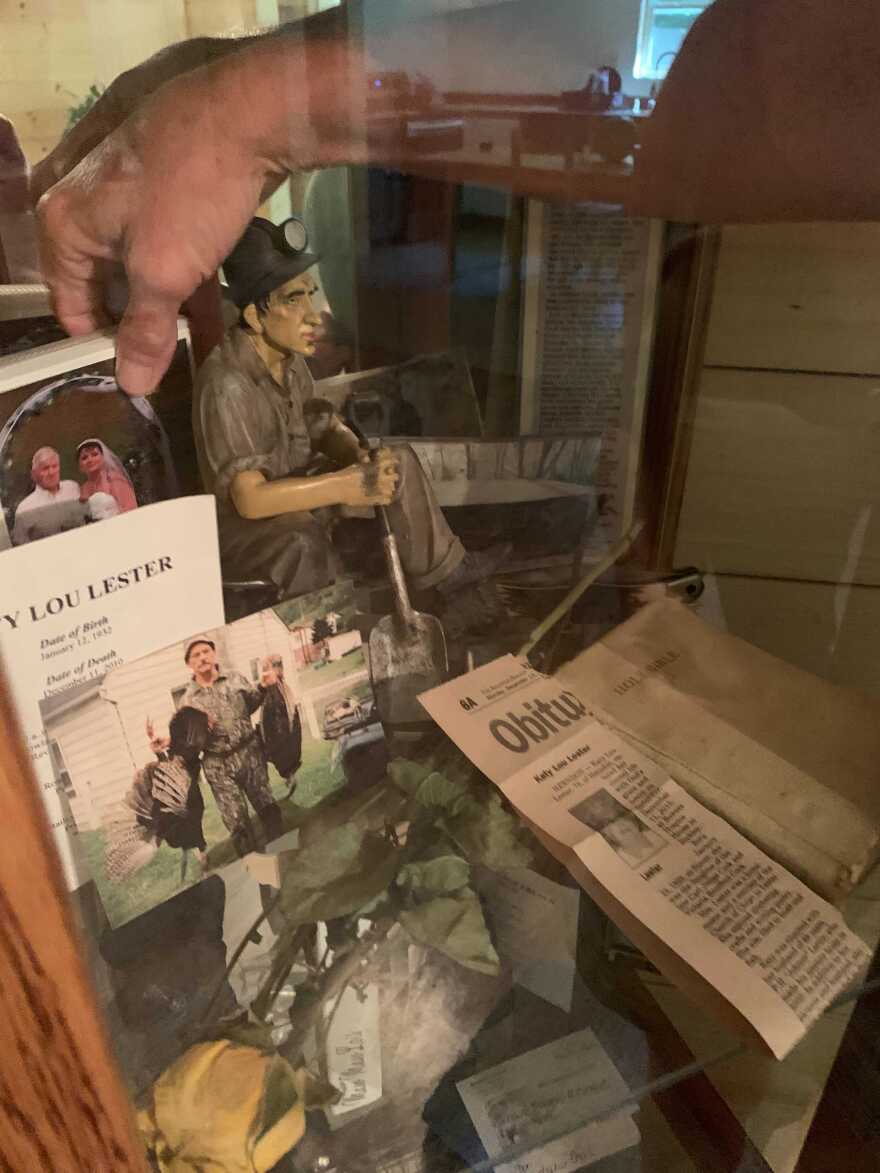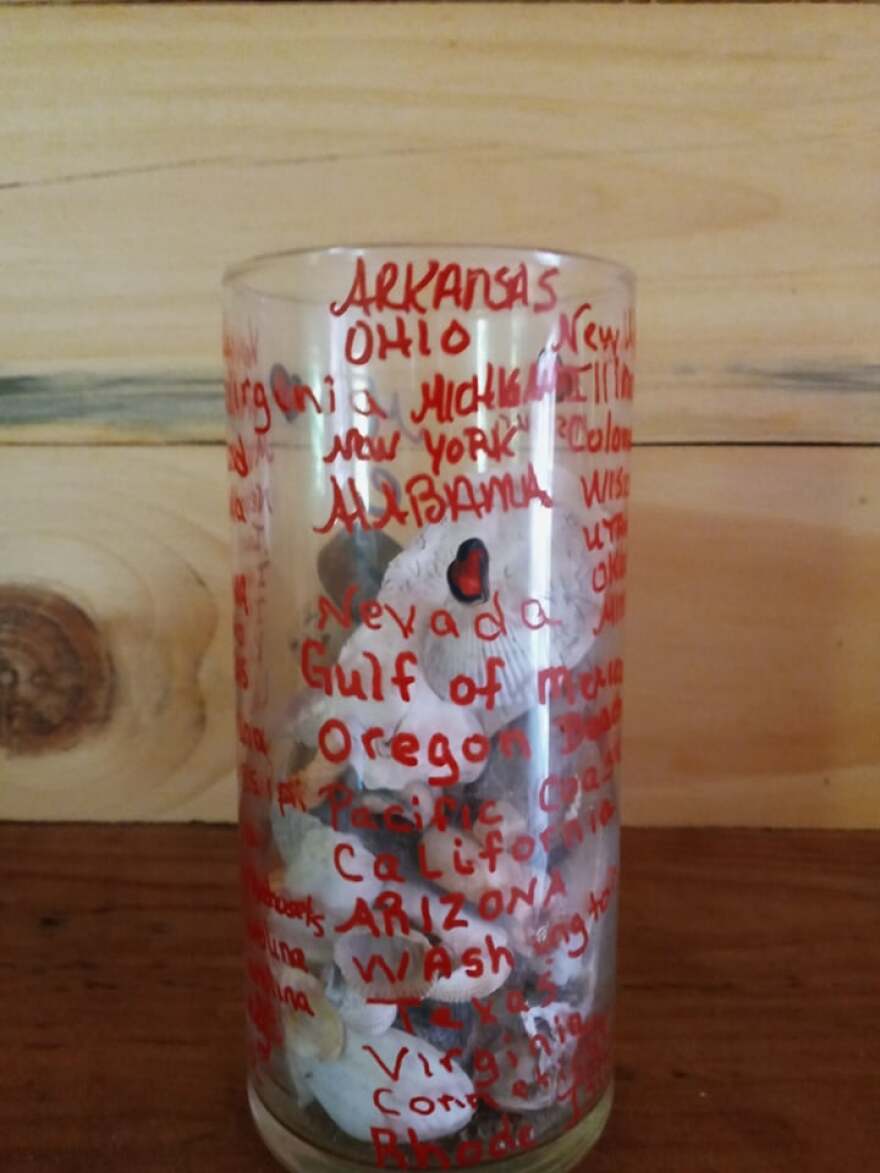W.Va. Biscuit Voted ‘South’s Best’
Tudor’s "Mountaineer” biscuit was named “The South’s Best Biscuit” in an online poll contest held by Garden & Gun, a southern lifestyle magazine.
Continue Reading Take Me to More News
Anita Cecil McBride is a self-proclaimed country girl. She lives up a steep winding road, through a lush forest, and between a small field of corn and a chicken coop in the Appalachian mountains of Virginia.
It’s a hot summer day when Cecil-McBride settles into a plastic Adirondack-style chair facing the woods and she begins to tell the story of how she came to be a coal miner. Her story starts with family.

“My dad was a lifetime coal miner and supporter of the family, made really good money. He was a really good provider,” Cecil-McBride said.
Cecil-McBride grew up in an old coal camp town in Wyoming County, West Virginia, called Covel. Her mom took care of the house, the kids and — her father.
“They wanted me to go to college, but I ended up getting pregnant right out of high school and having a son,” Cecil-McBride said. “I tried to go to college, but it just, I had to go to work.”

Even working multiple jobs, it was hard to support her son. Then, she got to thinking about a job she knew paid better — coal mining.
“I listened to the stories of my dad growing up and all the things that he had to say,” she said. “And I just thought, man, that’s gotta be so cool.”
The first female coal miner in America wasn’t legally hired until 1973. At that time, women made 57 cents to a dollar earned by men. The American labor force has come a long way since then but still has a ways to go to reach equality, especially for women of color. In 2020, women earned 82.3% of men’s annual salary.
Cecil-McBride started working underground in July 2005. After she put in the time and took the training to earn her black hat, or mining certificate, eventually, she told her parents.

“Oh lord. My mom threw a fit,” Cecil-McBride said while laughing. “My dad said, ‘you sure that’s what you want to try.’ I said, ‘Yeah, Daddy it is.’ He said, “Well, I tell you one thing, if there’s any woman alive that can do it, you could.”
So she followed her father into a male-dominated industry. Not everyone thought she could be a coal miner.
Underground mining was a new culture and her dad had plenty of advice for her.
“He said respect yourself first and those men will respect you,” she said. “And I did and they did. He was right. He told me to find the oldest guy there and stick with him because he knew everything and then experienced everything and could keep me from getting hurt.”
Still, starting out was rough.
“I was probably the most nervous person that you could imagine,” she said. “It was different. I was the only woman there. They had to make me a shower room.”

This was in 2005 and even the latest data from the U.S. Dept. of Labor says that in 2020, about 10% of workers in the coal industry were women.
It was just a little more than 40 years ago that women were still battling the idea that a female underground was bad luck.
But Cecil-McBride said this wasn’t the case for her in 2005. Some of the other miners knew her father, Verland Cecil, or “Big Dog” as they called him, which helped.
“They’d say, ‘that was one tough you know what,” Cecil-McBride said with a smile. “I’ve heard that was the strongest man anybody ever knowed.”
Being an underground coal miner was a big part of who her dad was and it was starting to become a part of her identity too. She embraced certain aspects like shedding cultural expectations for women to dress, speak and even look a certain way.
When she was asked to be a part of a photography project in her mining clothes, she jumped at the chance.

The project was called “America’s Coal Miners” and was recently donated to the West Virginia Department of Arts, Culture and History. The project, shot by photographer Thorney Lieberman, includes life-size images of Cecil-McBride and other West Virginia coal miners in high quality photographs from the tips of the boots to the tops of their hats.
Cecil-McBride’s proud to be a part of the project but nothing compares to the special closeness she felt with her fellow miners.
It still makes her emotional to think about it.

“It’s a relationship and a bond that a lot of people won’t ever get to experience and that’s because my life’s in your hands,” she said. “From the moment we get on that man trip until the time we come back out.”
Cecil-McBride says that the negative feedback she received because of her career choice came from the women in her community, not the men.
“It’s very hard,” she said. “Because they had a husband helping support their family, I didn’t. I even told one one time, ‘I’ll stay home if you want to pay my bills, too.”
Still, sometimes Cecil-McBride did have to deal with traditional divisions of labor underground.
“I tried my best not to ask for help,” Cecil-McBride said. “I said, you know, if I’m going to go underground and make the same money that they’re making, I need to really give it all I’ve got. But I’m sure that they didn’t put me in positions that they knew I couldn’t do.”

She’s not alone. Sue Tallichet, professor of sociology at Morehead State University in Kentucky wrote a book about women miners in Appalachia called, “Daughters of the Mountain.”
“A lot of the women were determined, even when it was really tough on them. If it was really hard for them to do something, they went at it anyhow because they felt they had to prove themselves,” Tallichet said.
Tallichet talked with women during the 1990’s. These women had jobs as coal miners because of the Coal Employment Project in the late 70’s. It was a non-profit organization that brought a class action lawsuit against a coal company after an operator refused to allow a woman underground because he said it was ‘bad luck.’
But that was just the first fight for the women miners. They had to even navigate the workload carefully as chivalry could create more problems.
“Don’t pick that up! You’re a woman,” Tallichet said. “That would have bothered a lot of women because then they would have been afraid that the same male miner would have come in and tried to help them and then later turn around and say see I told you she couldn’t do it.”
Women miners had to learn how to navigate the expectations of men, take on the traditional female roles and figure out where to draw the line.
“They wanted to make it as coal miners but they really were up against it because being a coal miner meant being a man. Being masculine,” Tallichet said. “They kind of had to walk a fine line between staying female and keeping that identity and while at the same time knowing how to do things men could do.”
Talichett remembered a few examples the women miners shared with her.
“After their dinner the boss came to her and said there’s some trash down there in the dinner hole would you mind cleaning that up,” Tallichet recalled, “and she said ‘No and I’ll tell you why. I’m no housewife down here.’
“They wanted to make it as coal miners but they really were up against it because being a coal miner meant being a man. Being masculine."
Sue Tallichet, professor of sociology at Morehead State University
Women found themselves in those situations, a lot. Where they were expected to do sort of the mining housewifery and a lot of said no I’m not doing that. I’m not here for that.”
When it came to harassment, female miners found an even more difficult situation, even at mines supported by the United Mine Workers of America, where not all of them felt welcome or equal.
“Some women that I interviewed who wanted to be more a part of the union but they just felt that they were not full-fledged members. Not often treated that way. ‘Yea, you can be a part of the union but you need to do as you’re told and know your place.’ Union — it was welcoming but at the same time, you’re welcome but sit over here.”
Cecil McBride had a different experience with the union — mostly positive.
Like her father, Cecil McBride was a dues paying member of the United Mine Workers of America. She once traveled to Las Vegas for a rally to support legislation protecting miners’ pensions.

She got married in 2014 and added the name McBride. In 2015, with the coal industry in sharp decline, it was the UMWA that helped Cecil-McBride find another job.
So along with her husband, another out of work coal miner, she got her CDL or commercial driver’s license, and switched to another male-dominated field — truck driving.
“We decided that the only thing you could do to make as much money as you did coal mining was truck driving,” she said. “So they sent us to school. Paid to get us trained, even helped us find a job. But the only downside to that was it was over the road, so we were gone weeks and weeks at a time, and that was really hard.”
She misses being a miner, especially the bond she had with her crew.
“The relationship that I had with my guys, I wouldn’t trade for the world,” Cecil-McBride says as she fights back tears. “I love them and I miss them. Every one of them, even the hard-headed ones.”
Coal mining helped to build her relationship with her father, and she’s grateful for that.

“Every time we were together, we mined on the porch,” she said. “We’d sit and we would talk about all kinds of things to tell different stories.”
Inside her home, in the corner of the living room, is a wooden cabinet filled with items attached to her precious memories. There are portraits of her coal mining family, their obituaries, and her father’s harmonica.
She even has a few figurines carved from coal. “My dad used to collect these for me,” she said. “These are women coal miners. Everywhere he found them he would pick one up.”

Now the statues help to pick her up in a way. She’s no longer a miner, but the coal statues help her to remember the relationships she built underground- and with her father, Verland, before he died earlier this year.
She also treasures memories from her new job in the cabinet. There’s a glass vase-like container stacked with unique rocks, sea shells and even a cork – items that represent her new journey, driving a truck.
“All of them’s from the states we went to,” Cecil-McBride said. “And we would always find a rock or (something.) That was a bottle of champagne we drank in California.”

There’s even a piece of lava in the vase, and so far — only one piece of coal.